

Social psychology
Psychology phd specialization.
Develop innovative solutions to social challenges and societal issues through ASU's PhD program in psychology, specializing in social psychology.
How to apply
PhD program details
Specialization description
Degree awarded: psychology, phd.
Social psychology is one of six degree specializations offered through ASU's PhD program in psychology. Working with recognized leaders in the field, students explore human social behavior through topics like:
- Cultural change
- Human-computer interactions
Several faculty members combine social psychological theory with practical applications to societal issues, giving the program an international reputation for its dual emphasis on theory and practice. The Department of Psychology fosters collaboration, engaging students in research and coursework across all disciplines, preparing graduates to tackle real-world challenges like cultural biases and human interactions.
Important dates
- September 1: Fall 2025 application opens.
- December 5: Fall 2025 application deadline.
Students must submit ASU’s graduate application and the Department of Psychology’s Slideroom application to be considered for admission.
More about applying
Faculty and research labs
In the Robert B. Cialdini Social Psychology Research Labs , students work alongside highly productive faculty who are experts in social psychology.
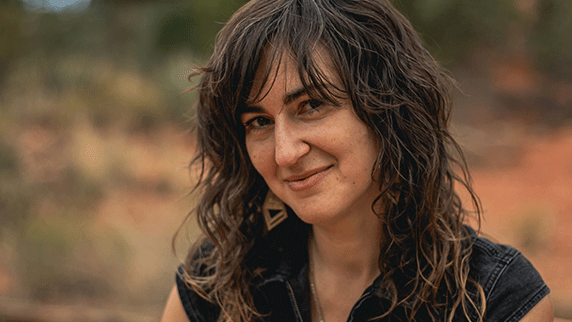
Dr. Athena Aktipis
The cooperation lab.
The Cooperation Lab studies the tension between cooperation and conflict in social living. Using methods like human food sharing and cooperation in multicellularity and cancer, they explore decision-making and principles shaping cooperation, focusing on the benefits and threats of social living and its evolution.
Explore the lab
View faculty profile
Recruiting new students for fall 2025
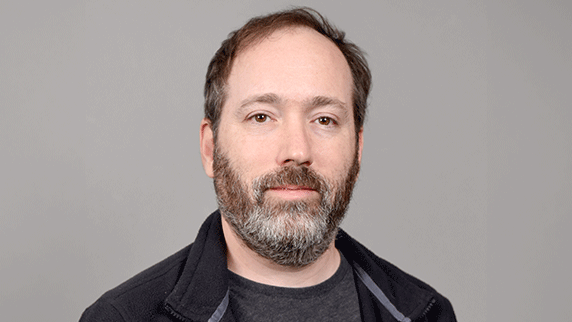
Dr. Adam Cohen
Carma: culture, adaptation, religion, morality, anthropomorphism lab.
The CARMA Lab, co-directed by Drs. Adam Cohen and Kathryn Johnson , explores how culture, religion and morality shape behavior. They examine the influence of religious beliefs on social interactions, cultural and individual factors in belief systems and the impact of ecology on social norms. They also study stereotypes, food taboos and programming machines with human values.

Dr. Douglas Kenrick
Evolutionary social psychology co-laboratory.
Led by Drs. Douglas Kenrick, Steven Neuberg , Vaughn Becker and Michael Varnum , the Evolutionary Social Psychology Co-Laboratory applies evolutionary psychology to study various topics such as motivation, emotion, health, prejudice, aggression and cultural change.
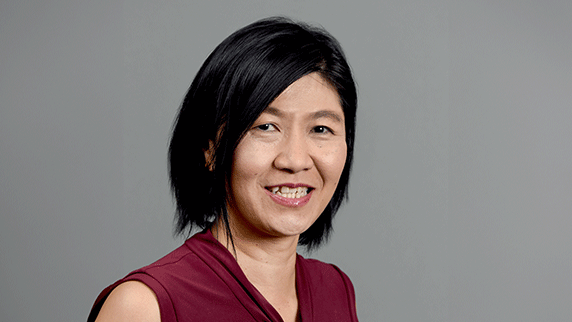
Dr. Virginia Kwan
Culture and decision science network lab.
The Culture and Decision Science Network studies how people's thoughts, feelings, and behaviors are influenced by culture. They look at how individuals perceive themselves and others, how they think within and outside their culture, and how they engage in digital and physical life.
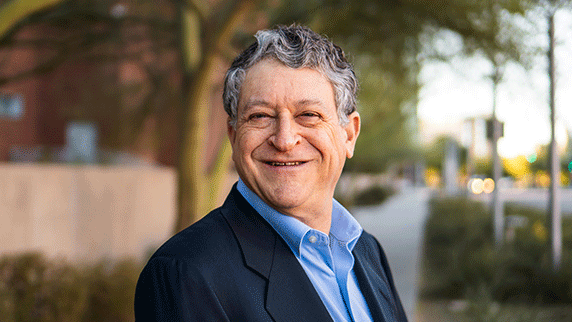
Dr. Steven Neuberg
Evolution, ecology, and social behavior lab.
The Evolution, Ecology, and Social Behavior Lab integrates social-cognitive, evolutionary and ecological approaches to investigate the origins, nature and nuances of prejudices, stereotypes and discrimination; the ways that fundamental motivations shape cognition and social behavior; and a wide range of other issues, too.
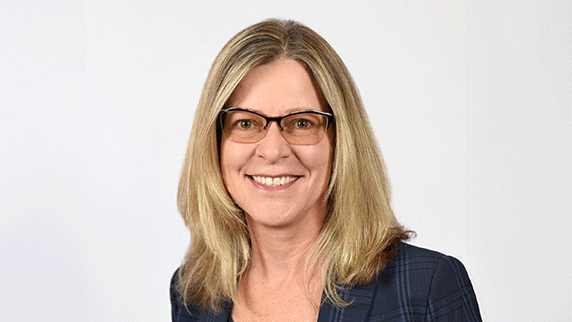
Dr. Tamera Schneider
Health psychophysiology lab.
The Health Psychophysiology Lab researchers stress resilience, health persuasion and the science of broadening participation, particularly in STEM disciplines.
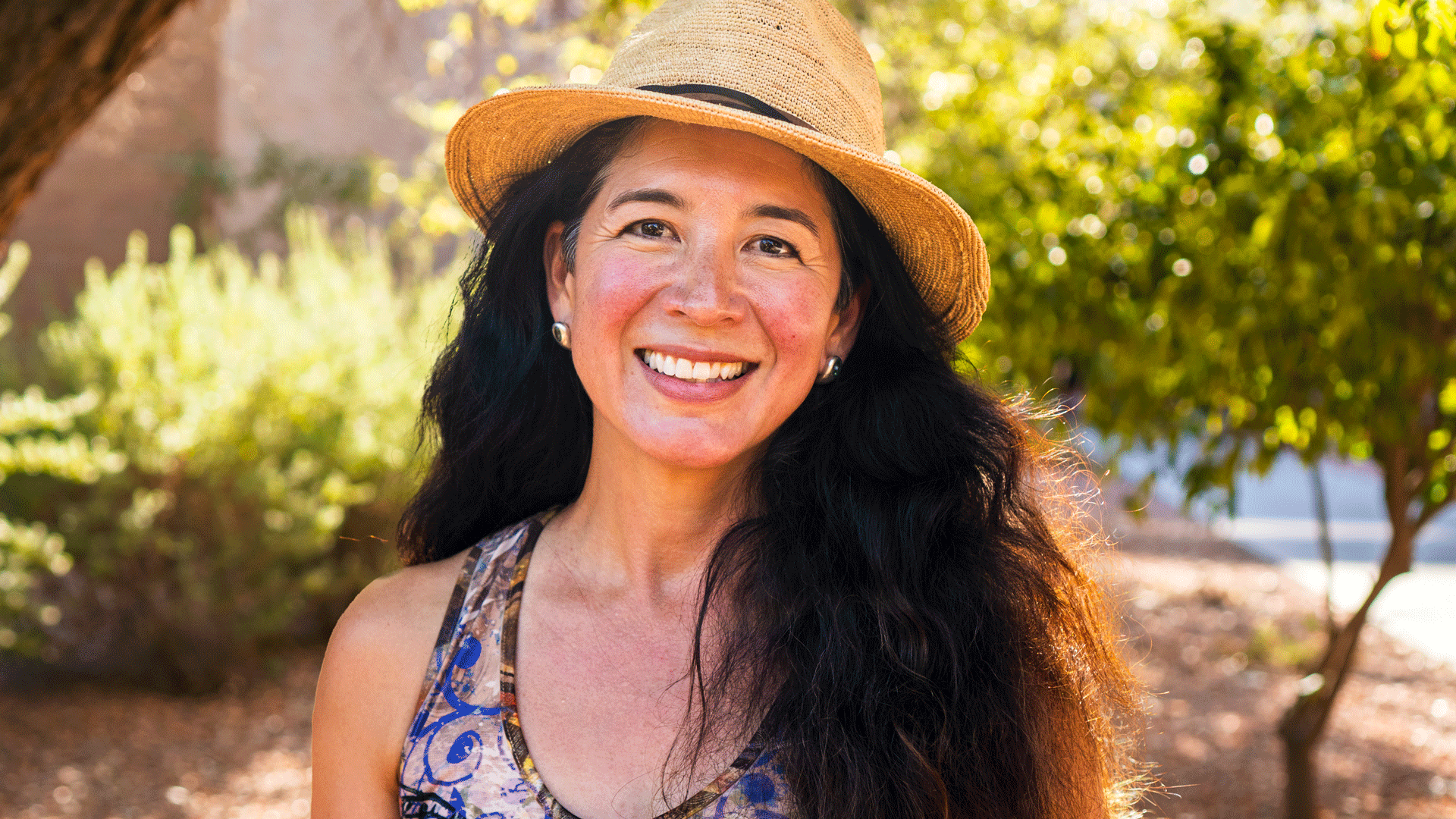
Dr. Michelle "Lani" Shiota
Splat: shiota psychophysiology laboratory for affective testing.
The SPLAT Lab addresses human emotion with emphasis on positive emotions, emotion regulation, emotion in close relationships and emotional mechanisms of behavior change. A growing body of research applies social psychology and affective science to trainings and interventions related to substance use disorder and perception of people experiencing addiction.
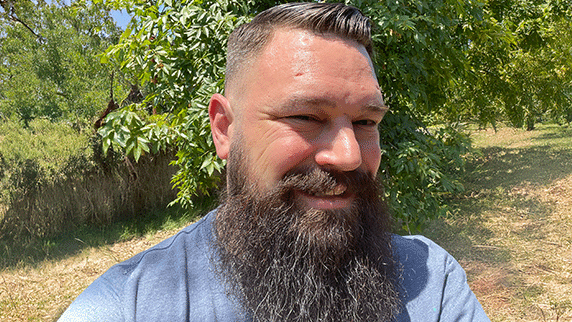
Dr. Michael Varnum
Culture and ecology lab.
The Culture and Ecology Lab focuses on understanding how ecological factors shape behavior, cultural variation and cultural change. The lab uses a wide range of methods to address these questions ranging from traditional experimental and quasi-experimental approaches to analyses of archival and big data.
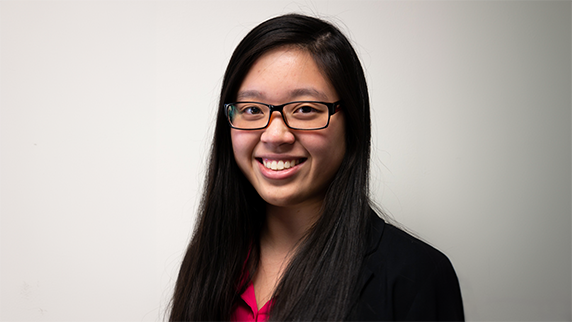
Dr. Deborah Wu
Incoming faculty: january 2025, idea: identity development, emotions and attitudes lab.
The IDEA Lab examines how social identities and emotions shape our experiences, attitudes and behaviors. Specifically, the lab investigates the antecedents and consequences of stereotyping and prejudice, with the ultimate goal of creating interventions to improve intergroup attitudes. The lab utilizes multiple methods, including longitudinal, experimental and psychophysiological approaches.
Courses and electives
Core and skill courses (24 credits).
Core courses. Two required advanced social psychology courses, in addition to topical seminars offered by faculty in the social psychology area.
Skill courses. Six required courses that integrate quantitative methodologies and professional development into students' work.
Electives (6 credits)
Elective breadth courses. Graduate-level courses in the developmental, biological, cognitive or clinical bases of human behavior designed to provide students with a broader perspective. Pending course availability, a teaching seminar offered by a member of the social psychology faculty may be considered as an additional elective.
Research (42 credits)
Research activities. Milestone courses, involving independent study and regular meetings with a faculty member to discuss assignments and conduct research.
Dissertation (12 credits)
Dissertation. Supervised research including literature review, research, data collection and analysis, and writing.
Graduate students in the social psychology training area are required to complete 84 credit hours. The coursework is customized for each student, considering their prior training, research goals and mentor and committee guidance. The program typically takes five years to complete, with an opportunity to earn a master's degree en route to the PhD. Throughout the program, students aim to make unique scholarly contributions through their research.
Student Handbook
Plan of study (iPOS)
In the initial year of residence, students take the first required advanced social psychology course, a seminar on current topics and quantitative methodology classes. They also start participating in research, working with multiple faculty members.
In the second year, students take the second required social psychology course and further their statistical skills through quantitative classes. They defend an independent research project as a master’s thesis and complete electives within and outside the department.
In the third year, students focus on a major area paper, which may be a topic review, grant proposal or meta-analysis. This leads to an oral exam covering the paper and other topics, advancing the student to PhD candidacy upon successful defense.
Year 4 and 5
In the final two years, students continue research and complete their doctoral dissertation. They may gain teaching experience through a graduate seminar and participate in bi-weekly research meetings for idea exchange and feedback.

The social psychology specialization offers training that enables students to become world class researchers, teachers and practitioners. Although most graduates pursue faculty positions, many have also found opportunities in industry and the nonprofit sector.
Faculty members serve as both educators and mentors, contributing to the ongoing success of the discipline through their graduates' accomplishments.
Get in touch
- For questions about the specialization, email the social psychology area head, Dr. Michael Varnum, directly at [email protected] .
Other specialized areas of study
Behavioral neuroscience and comparative psychology, clinical psychology, cognitive science, developmental psychology, quantitive research methods.

Social Psychology
Information about the Social Psychology Graduate Major
The graduate program in Social Psychology features a distinguished faculty and numerous research opportunities in laboratory and field settings within a culturally diverse and multifaceted metropolitan area. Our faculty areas of expertise are broad and center on basic research on close relationships and intergroup relations. In addition, faculty interests include political psychology, evolutionary psychology, family psychology, stress and coping, and issues pertaining to culture, ethnicity, and gender. A distinctive feature of our program is our long tradition of interest in social problems and the applicability of rigorous, theory-driven research to addressing them.
Doctoral students in our program gain familiarity with social psychology through a two-quarter course sequence during the first year of graduate work. In subsequent years, students are required to take three additional seminars on topics of their choosing. Students concentrate on a single research project in the first and second years (Psych 251) culminating with the receipt of the Master’s degree. As training progresses thereafter, social psychology students typically work with their primary advisor or co-advisor to develop an increasing focus on their own particular topics in research and expertise in the associated methods.
Methodological and statistical training covers experimental design and procedures, survey and field research methods, and univariate and multivariate techniques, including use of structural equation modeling and hierarchical linear modeling. Although not required, but social psychology students can also minor in quantitative methods, health psychology, or diversity science.
Above and beyond individual research supervision and coursework, most social psychology faculty members run weekly lab meetings with graduate students, postdoctoral fellows, and visiting scholars. Seminars and colloquia presentations by distinguished visiting speakers, students, and faculty are also offered and round out the course of studies.
Along with the regular Social faculty in the Psychology Department, the Social faculty include a number of social psychology affiliates who are faculty members in other departments and schools, including the Anderson School of Management, Communications, Political science, the Geffen School of Medicine, and the Graduate School of Education and Information Studies.
The program encourages connections and interaction with faculty and students in other disciplines (e.g. Anthropology, Communications, Political Science, Psychiatry, and Sociology) which enables students to incorporate interdisciplinary study in a wide range of social and health sciences into their graduate education in social psychology.

More Social Psychology info
- For a list of Required Courses please see the Psychology Handbook
Psychology Headlines
From around the world.
- Reversing Time From Within: Can Gut Bacteria Delay Aging?
- Canada Town Council Gets Alternative After Refusal to Take King's Oath
- Russian Police Raid Moscow Nightclubs in LGBTQ+ Crackdown
- AI Can Predict Research Results Better Than Human Experts, Study Finds
- Maine Sues Oil Companies for Deceiving Public on Climate Change
- Indigenous Dishes Native American Chefs Invite People to Try
- Delay and Pay: Climate Tipping Point Costs Quadruple After Waiting
- Surveillance Advances Could Aid Trump in Crackdown on Immigration
Source: Psychology News Center
Social Psychology Doctoral Program
The Interdisciplinary Social Psychology Ph.D. program applies rigorous psychological and sociological scholarship to better understand the processes, structures and contexts that impact social interactions.
Program overview
The program emphasizes training in theoretical foundations, as well as qualitative and quantitative methods in basic and applied research. Though not all students choose one of these specializations, areas of emphasis include psychology and law, personal and social relationships, social psychology and health and organizational behavior. Gender, culture and development issues are integrated into the curriculum in each area of emphasis.
- Collective behavior
- Emotion expression and regulation
- Health and health policy
- Interpersonal communication and relationships
- Intergroup relations
- Law and juvenile studies
- Life span and aging research
- Political psychology
- Social inequality
- Social networks
- Socialization
Incoming students develop a mentoring relationship with a faculty member of the program. Students are encouraged to engage in scholarly research, often in collaboration with faculty, to present findings at professional meetings and to publish in reviewed journals and volumes. In addition to the support offered by the University's Graduate Student Association , the social psychology Ph.D. program offers financial assistance for student travel and research.
The program's interdisciplinary focus allows students to experience a wide range of perspectives within the field of social psychology. This holistic approach prepares students for engaging and rewarding work in both academic and applied settings upon completion of the program.
Graduates of the program are today employed in a variety of capacities. Roughly one-third teach and conduct research at universities, typically in tenure-track positions. One-third have full-time research positions in the public sector (county, state or federal level positions, including nonprofit organizations). The final third of graduates work in the private sector, either for commercial organizations -- for example, Adobe or Hotwire -- or operate their own consulting business. In short, advanced graduate training in social psychology can lead to a wide range of career paths.
Program resources
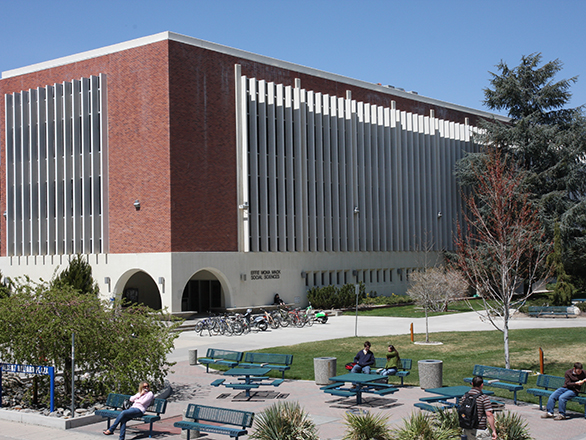
The handbook provides the necessary information for students to understand the requirements, expectations and opportunities associated with this graduate program.

Requirements
The curriculum of the program extends over a minimum of four years and includes multiple requirements. Learn more on general and credit requirements, deficit coursework and more.

View a semester-by-semester timeline of the degree program both with or without the optional master degree track.
Funding opportunities
General award resources.
- American Psychological Association (APA): The APA provides access to information about a large number of funding sources, ranging from federal grants to student award by different APA divisions.
- American Psychological Foundation (APF) : APF offers a number of scholarships for students. They range from $2,000 to $5,000. Students at any stage of graduate study are encouraged to apply. The purpose of the scholarship program is to assist graduate students of psychology with research costs associated with the master’s thesis or doctoral dissertation.
- American Psychology-Law Association (AP-LS) : AP-LS as an organization has funding opportunities for social psychologists interested in the law.
- Association for Psychological Science (APS) . APS collects links to a number of different national and international funding programs.
- American Sociological Association (ASA) : ASA offers a number of grants and fellowships.
- National Science Foundation (NSF) Graduate Research Fellowship Program : A variety of NSF fellowships exist.
- Society for the Psychological Study of Social Issues (SPSSI): This organization offers grants and awards to social psychologists for a range of different purposes
- Western Social Science Association : This organization also offers awards for best paper/poster and other things.
Comprehensive lists of funding sources available to graduate students across the U.S.
- The Graduate School, University of Nevada, Reno funding list
- University of Tennessee, Knoxville Collection : UTK makes available a collection of links to websites & organizations that offer various grants types of graduate funding.
Dissertation funding
- American Council of Learned Societies : The American Council of Learned Societies offers a variety of different dissertation grants/fellowships.
- APA Dissertation Research Award : The APA offers a dissertation research award. They have a number of grants (about 30-40) for $1,000 each; there are also several larger grants up to $5,000 each.
- American Educational Research Association: Proposal are encouraged from a variety of education fields or fields doing education-related research. It is a one-year fellowship and is worth $25,000. See website for criteria/eligibility.
- Bilinski Fellowship: This fellowship is offered every year to help fund the final year of the doctoral students within a Ph.D. program associated with the College of Liberal Arts. Students can ask the director of the program for more information about the fellowship. The deadline to apply is usually in early March.
- Council of Graduate Departments of Psychology (COGDOP) . In conjunction with the American Psychological Foundation (APF), COGDOP offers over 20 graduate research scholarships to support dissertation research
- Ford Foundation : This fellowship is offered every year. The stipend is $21,000.
- Horowitz Foundation : The Horowitz Foundation offers grants for graduate students to work on their dissertations. They offer $7,500 ($5,000 is awarded initially and $2,500 is awarded upon completion of the project).
- Decision, Risk and Management Sciences : It supports research “directed at increasing the understanding and effectiveness of decision making by individuals, groups, organizations, and society.”
- Law & Social Sciences : The website says that the program considers proposals that address social scientific studies of law and law-like systems/rules.
- Political Science Doctoral Dissertation Research Improvement Grants : Areas include, but are not limited to: American government and politics; comparative government and politics; international relations; political behavior; political economy; and political institutions.
- Science, Technology, and Society : This focuses on a variety of different science, technology, and society (STS) topics. For instance, it includes interdisciplinary studies of ethics, equality, governance, and policy issues.
- Sociology Program – Doctoral Dissertation Research Improvement Awards : This is for dissertation projects. It focuses on a variety of different topics, so it is not limited to just one type of research.
- P.E.O. Scholar Award : One-time, competitive, merit-based awards intended to recognize and encourage academic excellence and achievement by women in doctoral-level programs. These awards provide partial support for study and research. P.E.O. Scholars have demonstrated their ability to make significant contributions in their chosen field of study, having assumed leadership positions in university academics, scientific research, medicine, law, performing arts, international economics, history, literature, government and other demanding fields. The award is $20,000.
- SPSP Heritage Dissertation Research Award : Each year, the Foundation for Personality and Social Psychology awards six grants of $2,000 each. At least two grants are in personality psychology and at least two grants are in social psychology.
- Woodrow Wilson Dissertation Fellowship in Women’s Studies : “The WW Women’s Studies Fellowships support the final year of dissertation writing for Ph.D. candidates in the humanities and social sciences whose work addresses topics of women and gender in interdisciplinary and original ways.” Winners receive $5,000 to be used for expenses connected with completing their dissertations (e.g., research-related travel, data work/collection, and supplies).
Graduate student research grants
- American Council of Learned Societies : The American Council of Learned Societies offers a variety of different grants for research.
- American Educational Research Association : Research grants are available for various education research fields, as well as fields and disciplines engaged in education-related research. Minorities are strongly encouraged to apply. “Awards for research grants are up to $25,000 for a 1-year project or up to $35,000 for 2-year projects.” See the website for additional eligibility criteria.
- Wayne F. Placek Grants : This grant is designed to “support empirical research from all fields of the behavioral and social sciences on any topic related to lesbian, gay, bisexual, or transgender issues.” Grant is up to $10,000.
- Violet and Cyril Franks Scholarship : This is designed to “support graduate-level scholarly projects that use a psychological perspective to help understand and reduce the stigma associated with mental illness.” The scholarship amount is up to $5,000.
- American Psychology-Law Society (AP-LS) : AP-LS offers various grants/awards, and includes a Grant-in-Aid and the Diversity in Psychology and Law Research Award.
- American Sociological Association (ASA) : ASA offers various grants/awards (e.g., a Community Action Research Initiative Grant and Fund for the Advancement of the Discipline [FAD]).
- Society for Personality and Social Psychology (SPSP) : SPSP offers small research grants up to $1,500.
- Clara Mayo grant in support of Masters’ theses and pre-dissertation research on sexism, racism, or prejudice
- This organization also offers funding for travel.
- Society for the Scientific Study of Religion : Offers research grants to graduate students. Applicants must have been a member of the society at least one year prior to their application.
Pre-doctoral fellowships
- American Sociological Association : The American Sociological Association offers a minority fellowship program designed specifically for doctoral students of color. The annual stipend is $18,000.
- Ford Foundation pre-doctoral fellowships : Just as the Ford Foundation offers dissertation fellowships, it also offers pre-doctoral fellowships.
- National Science Foundation (NSF) Graduate Research Fellowship Program . The GRFP provides funding for three years in addition to research expenses.
Student travel/participation grants
- American Psychology-Law Society: Offers a travel award to fund travel to AP-LS every year. Students have won up to $500.
- American Sociological Association: The American Sociological Association offers a few travel awards/grants.
- Society for Personality and Social Psychology (SPSP): SPSP offers a number of different grants to graduate students, undergraduate students and scholars to attend its annual conference.
- Society for the Psychological Study of Social Issues (SPSSI) : Offers funds to travel to and attend SPSSI meetings.
- Western Psychological Association : T here is a Psi Chi WPA regional travel grant. This grant will help cover travel costs to the conference. Recent awards have been $225.
- Western Social Science Association : This organization offers a travel grant to attend its annual meeting. There is also a grant available to waive the conference registration fees for local students.
This program is part of the Western Regional Graduate Program (WRGP), a tuition-savings program that makes out-of-state graduate studies more affordable for students. Through WRGP, you will receive a reduced tuition rate, giving you more educational options for your money.
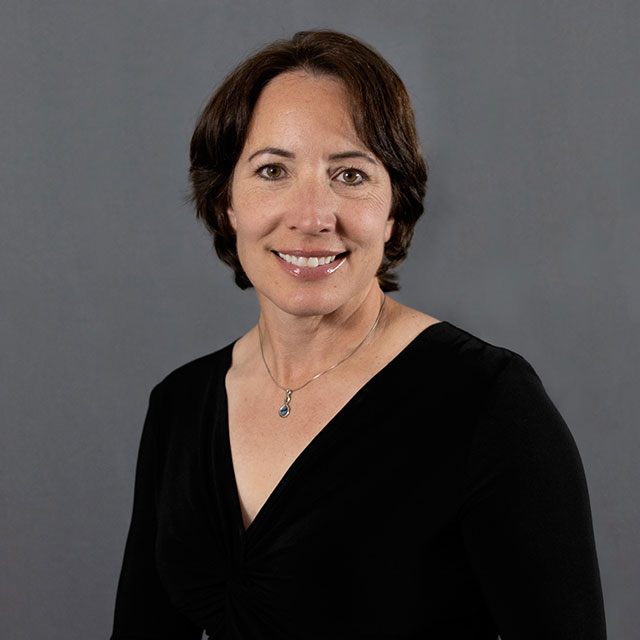
Questions? Contact the graduate program director
Monica Miller, Graduate Program Director and Foundation Professor
- [email protected]
- (775) 784-1287
Students are also encouraged to contact any faculty that they might be interested in working with as their graduate advisor. Feel free to contact more than one faculty member. View our filtered faculty listing to see who is currently accepting students.
Best Social Psychology Programs
Ranked in 2022, part of Best Social Sciences and Humanities Schools
Social psychologists are often
Social psychologists are often niche practitioners who examine how environment affects a person's behaviors. This branch of psychology focuses on thoughts, feelings and behavior. These are the top schools for social psychology. Read the methodology »
- Clear Filters

Ph.D. Social and Personality Psychology

Our Ph.D. program in Social and Personality Psychology is research-intensive, and designed as a five-year Ph.D. program to prepare students for scholarly careers in academic and other research settings. We train graduate students to become productive social psychologists who will contribute to the field through the advancement of theoretical understanding and empirical research in social psychology, and by effectively teaching courses within the domain of social psychology. Formal course requirements are minimized and collaborative research with one or more faculty is emphasized.
Preparing You For Success
We offer a robust, dedicated, and active program that leads to successful students. With four core faculty and a group of around 10 graduate students, the Social and Personality Psychology Program is relatively small by national standards, however, this allows for faculty and graduate students to develop deeply collaborative and productive working relationships.
Seminars are also small and highly productive. We are selective with graduate student admissions, and our students develop strong bonds with their mentors and cohort. By graduation, our students are well-prepared for the academic job market, as shown by the fact that most currently have a permanent or visiting faculty position.
Recent Alumni Job Placements & Awards
- Hannah Buie, Ph.D. (2023), Assistant Professor of Psychology, Western Carolina University
- Dylan Horner, Ph.D. (2023), Assistant Professor of Psychology, Minot State University
- Harrison Schmidt, Ph.D. (2023), Assistant Professor of Psychology, Skidmore College
- Jake Taylor, Ph.D. (2023), Research Administration Coordinator, Memorial Hermann - Rockets Sports Medicine Institute
- Ciara Atkinson, Ph.D. (2022), Evaluation Specialist, University of Arizona Department of Campus Recreation
- Eva-Maria Stelzer, Ph.D. (2020), Research Analyst Health, Hubert Burda Media
- Isaac Young, Ph.D. (2020) visiting assistant professor, Beloit College, Wisconsin
- Peter Helm, Ph.D. (2019) postdoc, University of Missouri
- Uri Lifhsin, Ph.D. (2017) postdoc, IDC, Herzylia, Israel
- Advanced User Experience Researcher, State Farm
- Peter Leavitt, Ph.D., (2016) Assistant Professor at Indiana State University
- Elizabeth Focella, Ph.D., (2012) Senior Consultant at Opinion Dynamics
- Rebecca Covarrubias, Ph.D., (2012) Associate Professor at U.C. Santa Cruz
- Melissa Soenke, Ph.D., (2012) Associate Professor at Cal State Channel Islands
- Megan Robbins, Ph.D., (2011) Associate Professor at U.C. Riverside
- Dave Weise, Ph.D., (2011) Senior Lecturer and Psych Advisor at Texas Christian University
- Shannon Holleran, Ph.D., (2010) Lecturer, Owens Community College, Ohio
- Daniel "Spee" Kosloff, Ph.D., (2009) Associate Professor at Cal State Fresno
- Chad Forbes, Ph.D., (2009) Associate Professor, and Social Psychology Program Director at the University of Delaware
- Mark Landau, Ph.D., (2007) Full Professor at the University of Kansas
Although our program is relatively young, we also take great pride in the accomplishments of the alumni of our program, three of whom have garnered early career awards: APA (Mark Landau, PhD. in 2007), International Society for Self and Identity (Jamie Arndt, Ph.D. in 1999; Mark Landau), the Society of Experimental Social Psychology (Eddie Harmon-Jones, Ph.D. in 1995) and the Society for Psychophysiological Research (Eddie Harmon-Jones).
Updated: 05/25/23
Interdisciplinary Collaboration
The University of Arizona is a highly interdisciplinary environment, and the social and personality psychology students have a history of successful collaboration with students and faculty in the clinical and cognitive neuroscience psychology programs and in other departments on campus (e.g., Family Studies and Human Development, Communications, Management, Marketing, Public Health).
Our program is especially enhanced by clinical students who are mentored by our social faculty and by clinical faculty who mentor our social students. Whenever a social student is interested in psychophysiology, perception, clinical, or other topics in psychology, there is usually a great opportunity for collaboration with faculty from our other departmental programs.
Updated: 11/01/24

PhD in Social Psychology
Become a leader and scholar with a focus on in the interface between the individual and the social environment..
The PhD in social psychology program at UMass Amherst will prepare you to be a leader and scholar with a focus on the interface between the individual and the social environment.
You may choose to pursue studies in the cognitive and affective processes underlying social behavior. In this general program, you’ll acquire the conceptual and methodological tools required for cutting-edge research as well as to teach social psychology at the university level.
Alternatively, you might choose to concentrate your studies in the Psychology of Peace and Violence Program. You’ll focus your research on the origins of violence between individuals, groups, and nations, and learn ways of promoting cooperation and peaceful human relations. You’ll also gain experience working in applied settings through an internship.
Our department is home to many laboratories working on developmental science and its related areas, including the Implicit Social Cognition Lab, Affect and Social Cognition Lab, War and Peace Lab, Human Relations Lab, Family Relationships, Affective Science & Minority Health (FAM) Lab, Social Processes and Health Lab, and Intergroup Relations and Social Justice Lab.
Related offerings
Students interested in our PhD in Social Psychology may also be interested in these other offerings.
- Bachelor of Arts in Psychology
- Bachelor of Science in Psychology
- Minor in Psychology
- Developmental Disabilities and Human Services Letter of Specialization
- 4+1 Master of Science in Neuroscience and Behavior
- PhD in Clinical Psychology
- PhD in Cognition and Cognitive Neuroscience
- PhD in Developmental Science
- PhD in Neuroscience and Behavior
Featured faculty
Rebecca ready.
Rebecca Ready is a graduate program director and a professor in the Department of Psychological and Brain Sciences.

Learn to think scientifically about behavior, mental processes, and underlying mechanisms.
Global footer
- ©2024 University of Massachusetts Amherst
- Site policies
- Non-discrimination notice
- Accessibility
- Terms of use

Welcome to the Social Psychology Graduate Program at the Department of Psychology and Neuroscience at University of North Carolina Chapel Hill. Our faculty have diverse interests in the social and affective processes that contribute to health, wellness, relationships, morality, and intergroup relations.
The Ph.D. program in Psychology is designed to provide students with the knowledge, skills, and judgment needed to become active contributors at the highest-level to research, teach, and provide public and professional service in the community.
The Social Psychology doctoral program maintains a flexible curriculum that allows students to develop their full potential as researchers and theorists. Students design a course of study that will best suit their unique trajectory. Learn more about our application process and curriculum .

- Program Areas
- Computational Cognitive Neuroscience
- Developmental
- Integrative Neuroscience
Social Psychology
About the Program Social psychology is the scientific study of how social environments shape our thinking, feeling, and behavior on one hand, and how our thinking, feeling, and behavior shape our social environments on the other hand. It is the scientific study of how the social world and psyche make each other up.
At the University of Chicago, the faculty and students are committed to making scientific and practical contributions to society. The primary goal of the UChicago social psychology program is to address pressing societal issues using social psychological theorizing and methods. This makes the UChicago social psychology program distinct. Our inquiry is inspired by the real world. Our findings will inspire the solutions to real-world problems and enhance the well-being of the individual and society. The faculty and students will investigate a variety of topics including racism, police violence, mass incarceration, income inequality, achievement gaps, interpersonal and intergroup conflicts, self-regulation, social support, happiness, meaning in life, prosocial behavior, politics, morality, religion, globalization, immigration, climate changes, natural disasters, culture, and evolution. We are diverse in terms of personal and cultural backgrounds, theoretical orientations, and preferred methodologies, but united in our commitment to and belief in the benefits of social psychological research for the individual and society. The Chicago School of Social Psychology is the social psychology that matters!
Meet our New Faculty

Xeuchunzi Bai Research Interests: Stereotypes, Diversity, Computational Social Psychology Read more about Xuechunzi Bai's research .

Lydia Emery Research Interests: Close Relationships, Social Class, the Self Read more about Lydia Emery's research .
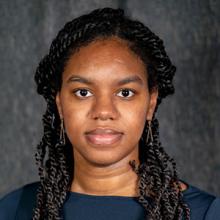
Kyshia Henderson Research Interests: Racism, Social Stigma, History Read more about Kyshia Henderson's research .

Shigehiro Oishi Research Interests: Culture, Social Ecology, Well-Being Read more about Shigehiro Oishi's research .
A note for applicants interested in Social Psychology: X. Bai, J. Decety, L. Emery, K. Henderson, and S. Oishi are taking graduate students primarily through the social psychology program.

Lin Bian Read more about Lin Bian's research .

Jean Decety Read more about Jean Decety's research .
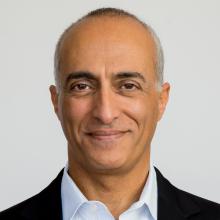
Boaz Keysar Read more about Boaz Keysar's research .
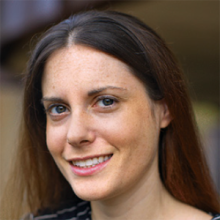
Katherine D. Kinzler Read more about Katherine Kinzler's research .

Yuan Chang Leong Read more about YC Leong's research .

Greg Norman Read more about Greg Norman's research .
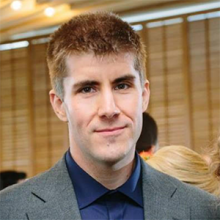
Alex Shaw Read more about Alex Shaw's research .
The Program's Legacy The Social Psychology Program at The University of Chicago has a rich history that has always emphasized innovative conceptual analyses of complex social issues. The first course in Social Psychology (entitled "Contemporary Social Psychology") was taught at the University of Chicago by George Herbert Mead in 1900. The lead article in Volume 1, Number 1, of the Psychological Bulletin, which appeared in January 15, 1914, was entitled "The Chicago School" by William James, in which he reviewed the work of John Dewey, George Herbert Mead, James Rowland Angell, and A. W. Moore. In 1965, the first meeting of the Society of Experimental Social Psychology (SESP) was held at the University of Chicago, and SESP was hosted again by the Social Psychology Program at the University of Chicago in 2007. Over the years, the program has grown from a small university committee to an interdivisional graduate training program administered in the Department of Psychology.
This Website Uses Cookies.
This website uses cookies to improve user experience. By using our website you consent to all cookies in accordance with our Cookie Policy.

IMAGES
VIDEO
COMMENTS
Social psychology doctoral programs set their course requirements. However, many include the following classes: Social Cognition: Explore cognitive development and its relationship with social cognition, including the role of cognitive processes in social interactions. Topics may also include memory, attention, and mental processes.
Graduate students in the social psychology training area are required to complete 84 credit hours. The coursework is customized for each student, considering their prior training, research goals and mentor and committee guidance. The program typically takes five years to complete, with an opportunity to earn a master's degree en route to the PhD.
The graduate program in Social Psychology features a distinguished faculty and numerous research opportunities in laboratory and field settings within a culturally diverse and multifaceted metropolitan area. Our faculty areas of expertise are broad and center on basic research on close relationships and intergroup relations. In addition ...
Links to 32 Social Psychology Ph.D. programs rank-ordered by quality. This page contains links to 32 social psychology Ph.D. programs ranked in quality according to the Princeton Review's "Gourman Report of Graduate Programs" (8th edition).
The Interdisciplinary Social Psychology Ph.D. program applies rigorous psychological and sociological scholarship to better understand the processes, structures and contexts that impact social interactions. The program emphasizes training in theoretical foundations, as well as qualitative and ...
Social psychologists are often niche practitioners who examine how environment affects a person's behaviors. This branch of psychology focuses on thoughts, feelings and behavior. These are the top ...
Interdisciplinary Collaboration. The University of Arizona is a highly interdisciplinary environment, and the social and personality psychology students have a history of successful collaboration with students and faculty in the clinical and cognitive neuroscience psychology programs and in other departments on campus (e.g., Family Studies and Human Development, Communications, Management ...
The PhD in social psychology program at UMass Amherst will prepare you to be a leader and scholar with a focus on the interface between the individual and the social environment.. You may choose to pursue studies in the cognitive and affective processes underlying social behavior. In this general program, you'll acquire the conceptual and methodological tools required for cutting-edge ...
The Social Psychology doctoral program maintains a flexible curriculum that allows students to develop their full potential as researchers and theorists. Students design a course of study that will best suit their unique trajectory. Learn more about our application process and curriculum.
Social psychology is the scientific study of how social environments shape our thinking, feeling, and behavior on one hand, and how our thinking, feeling, and behavior shape our social environments on the other hand. ... Graduate students in the social psychology program have opportunities to work with renown social psychologists at Booth ...